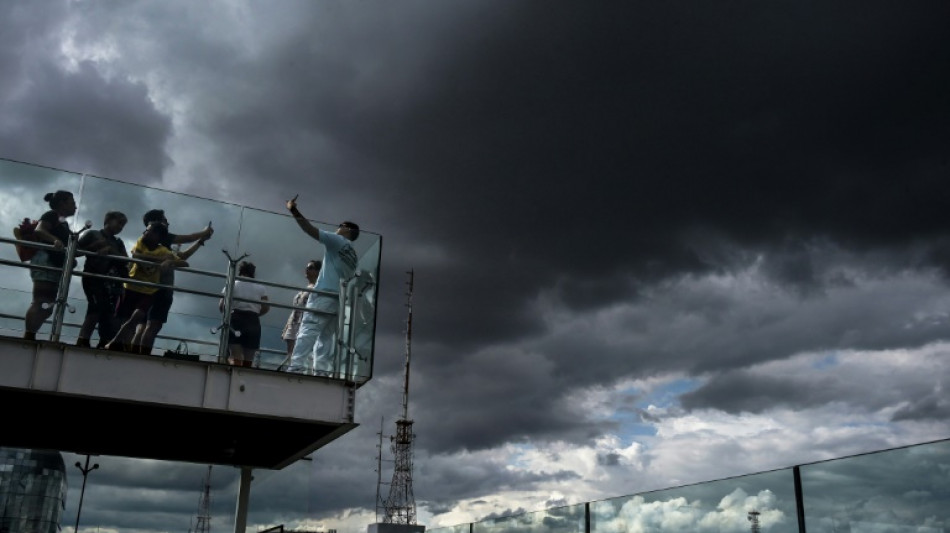
-
 Scorching 1,500m return for Olympic great Ledecky in Florida
Scorching 1,500m return for Olympic great Ledecky in Florida
-
Israel's Netanyahu warns wildfires could reach Jerusalem

-
 Istanbul lockdown aims to prevent May Day marches
Istanbul lockdown aims to prevent May Day marches
-
Australian guard Daniels of Hawks named NBA's most improved

-
 Mexico City to host F1 races until 2028
Mexico City to host F1 races until 2028
-
Morales vows no surrender in bid to reclaim Bolivian presidency
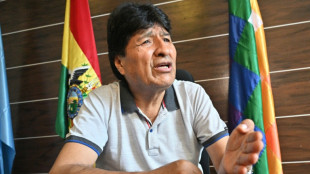
-
 Ukraine, US sign minerals deal, tying Trump to Kyiv
Ukraine, US sign minerals deal, tying Trump to Kyiv
-
Phenomenons like Yamal born every 50 years: Inter's Inzaghi

-
 Ukraine, US say minerals deal ready as Kyiv hails sharing
Ukraine, US say minerals deal ready as Kyiv hails sharing
-
Global stocks mostly rise following mixed economic data
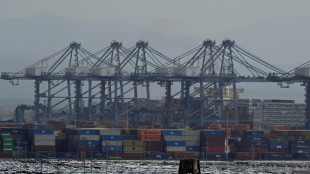
-
 O'Sullivan says he must play better to win eighth snooker world title after seeing off Si Jiahui
O'Sullivan says he must play better to win eighth snooker world title after seeing off Si Jiahui
-
Sabalenka eases past Kostyuk into Madrid Open semis

-
 Netflix's 'The Eternaut' echoes fight against tyranny: actor Ricardo Darin
Netflix's 'The Eternaut' echoes fight against tyranny: actor Ricardo Darin
-
US economy unexpectedly shrinks, Trump blames Biden
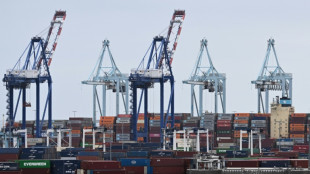
-
 Barca fight back against Inter in sensational semi-final draw
Barca fight back against Inter in sensational semi-final draw
-
Meta quarterly profit climbs despite big cloud spending

-
 US Supreme Court weighs public funding of religious charter school
US Supreme Court weighs public funding of religious charter school
-
Climate change made fire conditions twice as likely in South Korea blazes: study
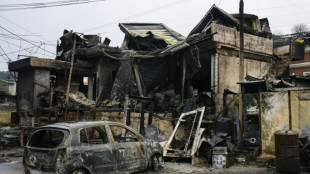
-
 Amorim says not even Europa League glory can save Man Utd's season
Amorim says not even Europa League glory can save Man Utd's season
-
Syria reports Israeli strikes as clashes with Druze spread

-
 Ukraine, US say minerals deal ready as suspense lingers
Ukraine, US say minerals deal ready as suspense lingers
-
Everything is fine: Trump's cabinet shrugs off shrinking economy

-
 Chelsea boss Maresca adamant money no guarantee of success
Chelsea boss Maresca adamant money no guarantee of success
-
Wood warns England cricketers against 'dumb' public comments

-
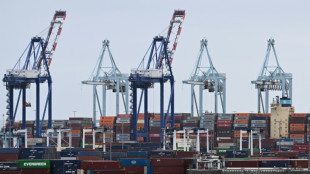 US economy shrinks, Trump blames Biden
US economy shrinks, Trump blames Biden
-
Caterpillar so far not hiking prices to offset tariff hit
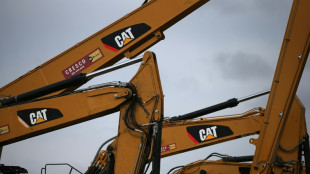
-
 Japan's Kawasaki down Ronaldo's Al Nassr to reach Asian Champions League final
Japan's Kawasaki down Ronaldo's Al Nassr to reach Asian Champions League final
-
Trump praises Musk as chief disruptor eyes exit

-
 Chahal hat-trick helps Punjab eliminate Chennai from IPL playoff race
Chahal hat-trick helps Punjab eliminate Chennai from IPL playoff race
-
Pope Francis saw clergy's lack of humility as a 'cancer': author
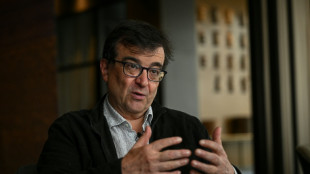
-
 Weinstein accuser recounts alleged rape at assault retrial in NY
Weinstein accuser recounts alleged rape at assault retrial in NY
-
Piastri heads into Miami GP as the man to beat

-
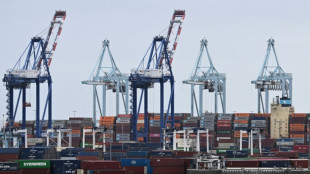 US economy unexpectedly shrinks in first quarter, Trump blames Biden
US economy unexpectedly shrinks in first quarter, Trump blames Biden
-
Maxwell likely to miss rest of IPL with 'fractured finger'
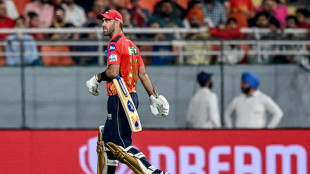
-
 Syria reports Israeli strikes after warning over Druze as sectarian clashes spread
Syria reports Israeli strikes after warning over Druze as sectarian clashes spread
-
Despite war's end, Afghanistan remains deep in crisis: UN relief chief

-
 NFL fines Falcons and assistant coach over Sanders prank call
NFL fines Falcons and assistant coach over Sanders prank call
-
British teen Brennan takes stage 1 of Tour de Romandie

-
 Swedish reporter gets suspended term over Erdogan insult
Swedish reporter gets suspended term over Erdogan insult
-
Renewable energy in the dock in Spain after blackout
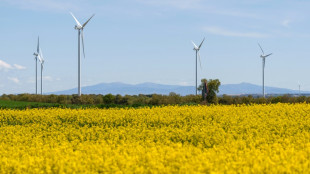
-
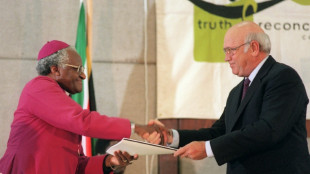 South Africa sets up inquiry into slow apartheid justice
South Africa sets up inquiry into slow apartheid justice
-
Stocks retreat as US GDP slumps rattles confidence
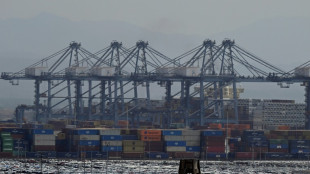
-
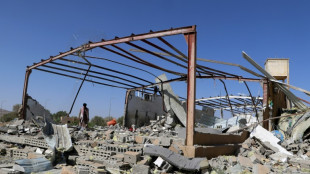 Migrants' dreams buried under rubble after deadly strike on Yemen centre
Migrants' dreams buried under rubble after deadly strike on Yemen centre
-
Trump blames Biden's record after US economy shrinks
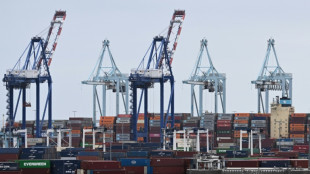
-
 UK scientists fear insect loss as car bug splats fall
UK scientists fear insect loss as car bug splats fall
-
Mexico avoids recession despite tariff uncertainty
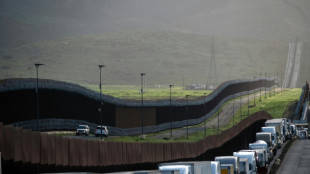
-
 Rwandan awarded for saving grey crowned cranes
Rwandan awarded for saving grey crowned cranes
-
Spurs have 'unbelievable opportunity' for European glory: Postecoglou
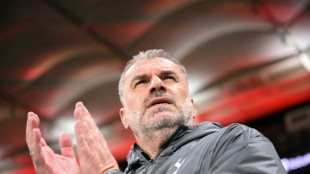
-
 Microsoft president urges fast 'resolution' of transatlantic trade tensions
Microsoft president urges fast 'resolution' of transatlantic trade tensions
-
Poppies flourish at Tower of London for WWII anniversary


How climate change turned Sao Paulo's drizzle into a storm
Such was Sao Paulo's reputation for "garoa" -- a fine evening drizzle caused by damp air from the nearby coast colliding with the city's cool climes -- that famous singer Caetana Veloso waxed lyrical about it in his 1978 hit
These days, however, light sprinklings are rare and deadly storms are increasingly the norm in the city of 12 million people.
In March, they popped out of work by car a snack when a sudden storm felled a tree that came crashing down on their windshield.
The pair, who were rescued by firefighters, escaped death by a matter of inches.
"It was a moment of terrible panic, a gusting wind whipped up in a few seconds," Andrade, a 43-year-old hospital worker, told AFP.
The increasing of extreme weather events is compared to vibey but violence-plagued Rio de Janeiro.
- Thousand-kilometer tailbacks -
In the last two decades the city has weathered storms classified "very dangerous" by the National Institute of Meteorology -- more than double than in the previous years.
Falling trees are a particular hazard: a staggering 2,000 have been toppled by storms so far this year, according to Sao Paulo city officials.
Scientists blame a mix of global warming and hyper-urbanization for driving up temperatures, which, combined with high humidity in the region, create the perfect storm.
Average summer daytime temperatures have risen by four degrees Celsius in Sao Paulo in the past 40 years, to 24.2 degrees Celsius ), according to weather officials.
"Today you have to think of Sao Paulo almost as a tropical city," said Cesar Soares, meteorologist for the Climatempo TV network.
- Living with risk -
The changes are taking a toll as Brazil's economic engine.
Nearly half of companies surveyed by the chamber of commerce of Sao Paulo state said their profits were hit by extreme weather last year.
Floods and power cuts damaged merchandise and caused downtime while the heat disrupted supply chains.
The worst drought since records began in Brazil, which experts have also linked to climate change, gave way to storms in October that knocked out power to nearly 1.5 million homes in Sao Paulo.
Authorities are trying to adapt to the upheaval.
Residents have received 14 storm alerts
Efforts are also underway to eradicate so-called "heat islands" -- densely populated areas where temperatures are often several degrees above average.
The city's green coverage -- the area occupied by trees, parks, rooftop gardens, street greenery -- has risen from 15 percent to 26 percent in the past three years
And the city's drainage system is being revamped to fight flooding.
But Sao Paulo's poorest districts are still fighting a rising tide of calamity.
In Jardim Pantanal, a low-income neighborhood on the banks of the Tiete River, residents had to use water drums as rafts to evacuate children during floods in February.
"The government proposed relocating families, but most of us don't want to leave," Pedro Guedes, a 66-year-old community leader said.
Lieutenant Maxwell de Souza, a Civil Defense spokesperson, acknowledged that it was "not feasible to evacuate everyone every time a neighborhood floods."
"That's why we're trying to create a culture of coexistence with risk: since we can't control climate change, we need resilient communities," he said.
Ch.Kahalev--AMWN